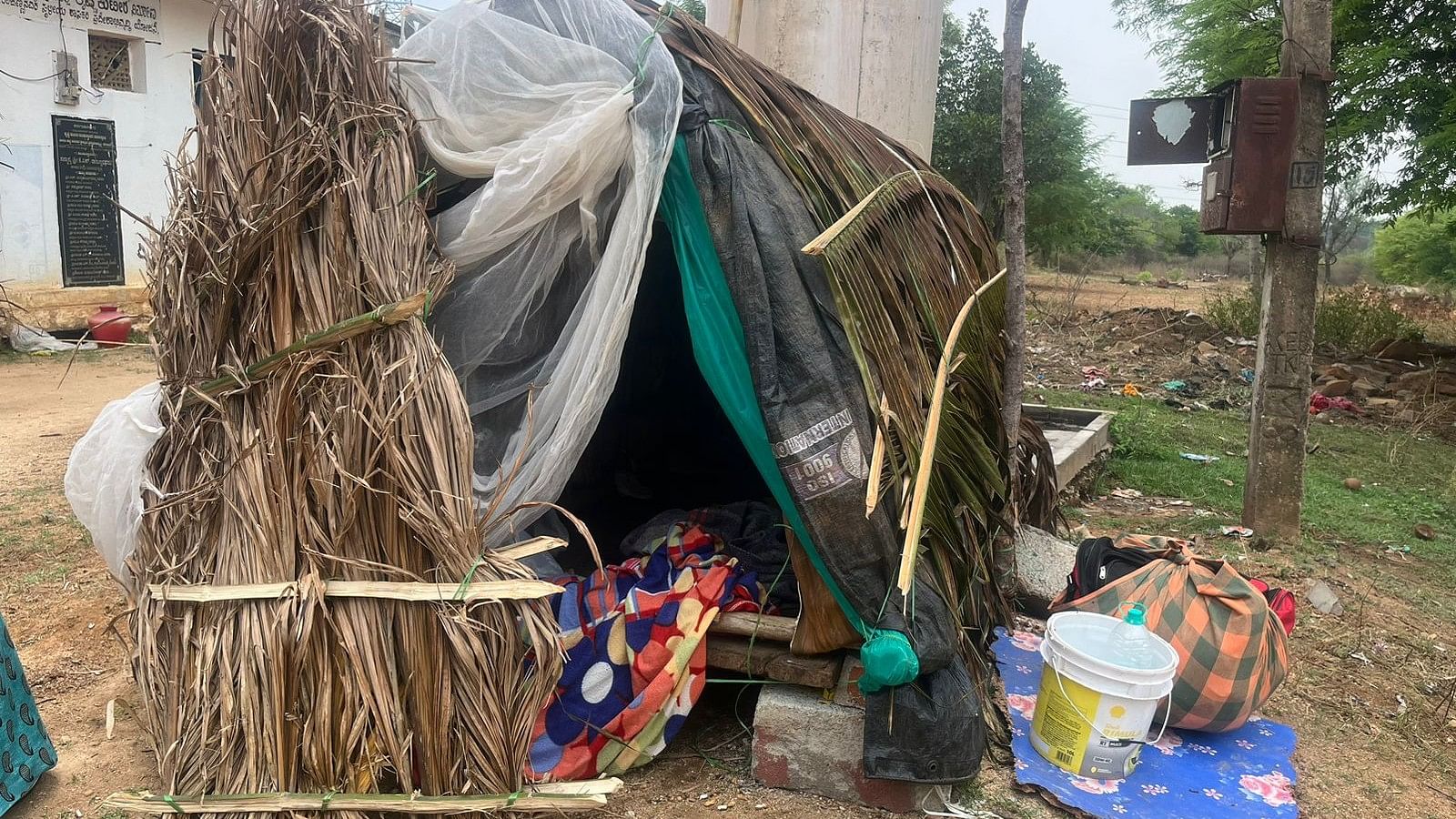
A gudlu or a thatched hut, to provide shelter to menstruating women left vulnerable to the vagaries of nature.
Credit: Special arrangement.
Tumakuru: Merely a stone’s throw from the capital of the state, the regressive tradition of menstrual exile persists, holding the lives, health and well-being of generations of women in Tumakuru district in a vice grip.
The tradition is openly practised at Bisadihalli, a village with just 50 families in the Tovinakere panchayat. New mothers and menstruating women are banished to the outdoors where they spend time in a gudlu or thatched hut or to the two-room Krishnana Kuteera— a facility constructed with state government funds, to provide shelter to women left vulnerable to the vagaries of nature.
New mothers are in exile for 3 months and menstruating women for 3 days. Short of room this time around, villagers suggested that the two women and their newborns stay in gudlu.
Nineteen-year-old Rachitha, freshly in recovery from a caesarean surgery, struggles to sit on the floor of the kuteera. However, even the idea of returning to her home is blasphemous as she believes her family would be in great danger if the tradition is broken. “I have seen families in our community that have suffered when they did not follow it. I am not prepared to bear the consequences,” she says.
Such convictions continue to hold ground in the village due to the insistence of elders, societal pressure, blind beliefs and fear of divine retribution. Several awareness programmes and ‘surprise inspections’ have been conducted in the past years in several Gollarahattis (settlements of the Kadu Golla community) across the district says Dr Diwakar, a medical officer at the Tovinakere Primary Health Centre. The doctor visited Bisadahalli after the issue was brought to his notice, where he explained the risks that both mothers and newborns could face.
In August last year, the death of a newborn after being exposed to pouring rain in a gudlu, had brought focus to menstrual exiles followed by the Kadu Golla community.
Manjamma, an activist who raises awareness among people in her community, explains many believe that weather conditions will not affect them nor will animals attack during this period. “This is not the truth. Scorpions and snakes find their way into these huts. In the past few years, some babies have been at the threat of dogs,” she says.
Over the years many activists have staged interventions at the village, family and personal level. However, without consistent and frequent action and legal consequences, the blind belief is bound to continue at the cost of women in the community.
There is disquiet about the practice, particularly among younger generations of girls. A college-going student, Hemalatha, for instance says, “We are not even allowed to touch our books. I want the practice to end,” she added.